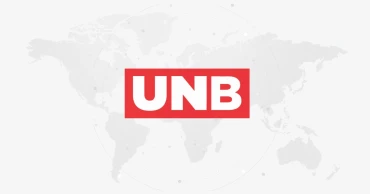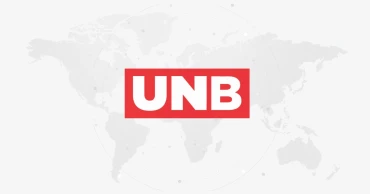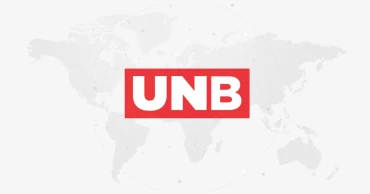ISCG
Rohingya response: Cox's Bazar NGOs for transparency, localisation
Local NGOs working in Cox's Bazar sought transparency and localisation of Rohingya response management ahead of the launching of the Joint Response Plan (JRP) 2021 on May 18.
The $943 million plan brings together the efforts of the government of Bangladesh, and 134 UN agencies and NGO partners, targeting 880,000 Rohingya refugees and 472,000 Bangladeshis in the surrounding host communities in Cox's Bazar, the UN said Friday.
However, opinions of the locals had little reflection in the document prepared by UN agencies, Cox's Bazar CSO NGO Forum said Sunday.
Read Bangladesh to demand 10pc of funds for Rohingyas in Bhasan Char: FM
In the last four years, the Inter Sectoral Coordination Group (ISCG) rarely came up with any statistics on how much fund had gone to host communities, how much had been used for local procurement and the number of local staff employed, Rezaul Karim Chowdhury, co-chair of the CCNF, Rezaul Karim Chowdhury said.
"During the preparation of JRP plan 2021, we provided written comments on behalf of local and national NGO representatives and also organised a virtual webinar on May 5, where lawmakers, local government and UN representatives had participated. But opinions of the locals have little reflection in the document."
"Moreover there is no outline about response management if no repatriation takes place in the next five to 10 years," Rezaul added.
Read EU scales up assistance for fire victims in Cox’s Bazar
He was addressing the conference "Joint Response Plan 2021, Rohingya Response Management and Strategy: Hardly Fit for the Purpose and Futuristic" organised by CCNF.
Bimal Chandra Dey Sarker, chief Executive Mukti Cox's Bazar, said: "The UN agencies prepared the Localization Task Force in 2019 to prepare a localisation road map. The report was finalised and submitted in November 2020, but yet to be published."
Abu Morshed Chowdhury, the co-chair of CCNF, said: "There are three lines of coordination management – ISCG, Refugee Relief and Repatriation Commissioner and Office of the Deputy Commissioner – now. But there should be a single line authority for coordination."
Read Congressman Deutch lauds Hasina's role over Rohingya issue
4 years ago
Rohingya camp fire: Humanitarian community calls for compassion
The humanitarian community has called for compassion for Rohingyas in Bangladesh as a massive fire ravaged through camps leaving thousands destitute.
"We’re calling for a show of compassion and solidarity towards the Rohingya refugee population during this very difficult time," the community said in a joint press statement on Tuesday night.
Inter Sector Coordination Group (ISCG) issued the joint press statement.
It said they are deeply concerned about the safety and wellbeing of tens of thousands of Rohingya refugees in Bangladesh left destitute by the fire that raged through four camps on March 22.
Fire services and civil defence, emergency and response teams and aid agencies rushed to the areas affected by the fire and helped move refugees to safer locations, the statement reads.
"Tragically, reports from the camps indicate that at least 11 people are said to have lost their lives in the fire and more than 500 others have been injured. Around 400 people are unaccounted for," it said.
Also read: Rohingya camp fire: Death toll climbs to 11
The government authorities and aid agencies worked throughout the night to help those impacted and assess damages in the camps.
The refugees who fled the fires are taking shelter in various locations.
Many are staying with relatives or in learning and transit centres which are accommodating the most vulnerable people.
The government of Bangladesh and aid agencies are providing water, hot meals and high energy biscuits as well as emergency healthcare to those affected.
The fire consumed shelters and personal belongings of refugees as well as essential facilities such as hospitals, primary health facilities, learning centres, and women-friendly spaces in the camps.
"Teams on the ground say the scale and intensity of the fire is unlike anything seen before in the camps," the statement said.
Also read: Fire at Rohingya camp caused 'enormous devastation': UNICEF
Some 24 hours into the response, preliminary assessments by aid agencies have found that some 10,000 Rohingya refugee families (approximately 45,000 persons) were displaced and a similar number of shelters have been damaged or destroyed in the camps as a result of the fire. Assessments are still ongoing.
"As the humanitarian response continues, healthcare and mental health support is being provided to those who’ve been injured or experienced stress as well as first line responders."
Moving forward, it said, the priority will be to reunite families and children who were separated during the fire and the subsequent movements to safe places, as well as to identify and support persons with specific needs, such as older persons, pregnant women and persons with disabilities.
Aid agencies are also monitoring the safety conditions of refugees to mitigate risks, as they remain vulnerable to incidents of theft, harassment, and exploitation.
Another priority for authorities and humanitarian actors will be to replace the key documentation that Rohingya refugees lost in the fire, it said.
Rescue efforts proved to be challenging as a result of the presence of perimeter fencing. In some instances, refugees themselves cut through the fence to escape the fire.
Also read: Fire breaks out at Rohingya camp in Ukhiya
Limited mobile connectivity in the camps also hampered the ability of refugees to call for immediate assistance and contact their families, the statement said.
"It also continues to limit the coordination of the aid response."
Refugee volunteers are playing an invaluable role in the response.
They are the first responders, helping people to safety, supporting fire response efforts and continue to work to support aid efforts on the ground.
The humanitarian community is urging the public to respect privacy of those Rohingya refugee families who have either lost family members or have been impacted by fires.
4 years ago
Youths call for inclusion in decision making process
Young people, who are differently affected by the global pandemic in Cox’s Bazar, have made a call for inclusion in decision making processes on the day of International Youth Day.
5 years ago
ISCG undermining local NGOs in Rohingya crisis response
Leaders of Cox’s Bazar CSO NGO Forum (CCNF), a platform of local NGOs in Cox’s Bazar district, on Tuesday raised questions over the role of the ISCG (Inter Sectoral Management Group), which provides an umbrella to manage the Rohingya response led by UN agencies and their partners.
5 years ago
Revise conditions for emergency Rohingya response fund: NGOs to UNRC
CCNF, a network of more than 50 local and national NGOs working in Cox’s Bazar, urged the UN Resident Coordinator (UNRC) to revise the allocation application’s conditions of $4 million CERF/emergency coronavirus fund so that local NGOs can participate in humanitarian response for the Rohingya population.
5 years ago
Coronavirus test, treatment equally available to Rohingyas, locals: ISCG
The government, UN agencies and NGOs have worked "intensively" to increase coronavirus testing, expand isolation and treatment capacities for all people in Cox’s Bazar, which are available for Bangladeshis and Rohingyas on an equal basis, the Inter Sector Coordination Group (ISCG) said Friday.
5 years ago



.jpg)




